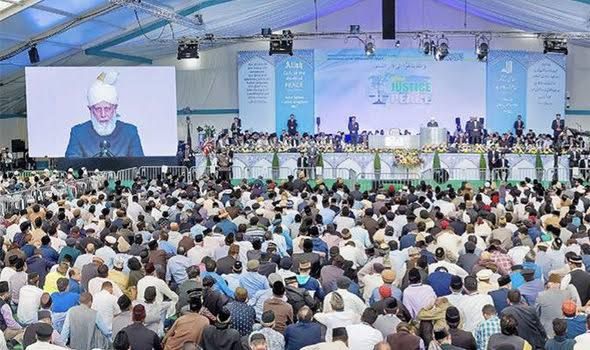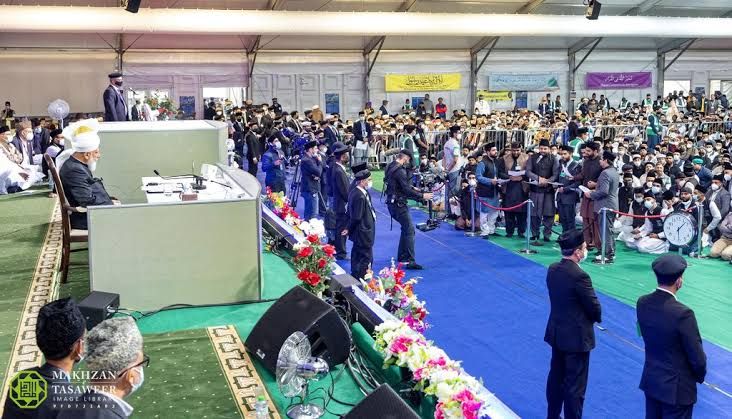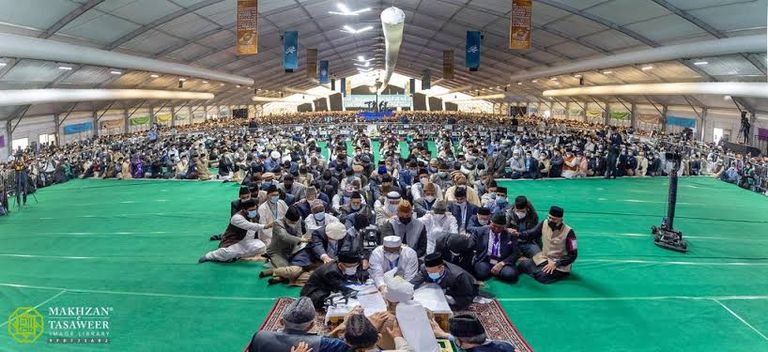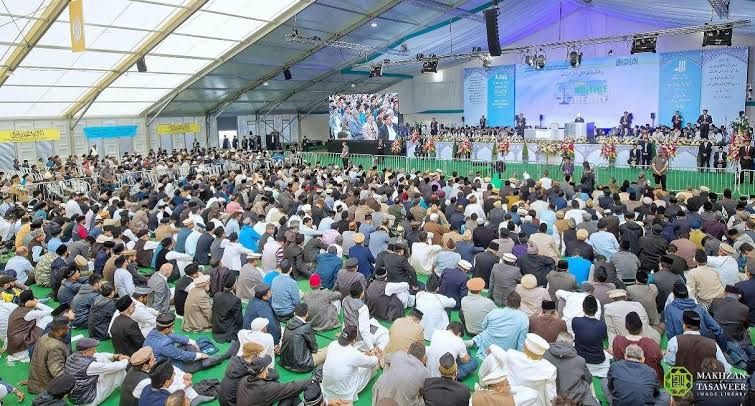
We can easily understand this world but to understand hereafter we need waz nasiht.
Understanding the concept of the world beyond, often referred to as the "hereafter" or the afterlife, involves delving into various religious, philosophical, and cultural perspectives. One significant aspect of this exploration is the guidance provided through Waz (Islamic sermons) and Nasiht (counsel or advice). These elements play a crucial role in shaping beliefs, moral conduct, and the preparation for what comes after our earthly existence.

source

source
In Islam, the concept of the hereafter is deeply embedded in the faith. Waz and Nasiht serve as powerful tools to elucidate the teachings of the Quran and the sayings of Prophet Muhammad (peace be upon him) regarding the afterlife. The sermons provide a platform for scholars and religious leaders to convey the significance of preparing for the hereafter through righteous deeds, faith, and adherence to moral principles.
The Waz often emphasizes the transient nature of worldly life, urging believers to focus on actions that will contribute to their success in the afterlife. It serves as a reminder that life on earth is a fleeting journey, and the choices made here have eternal consequences. Through compelling narratives and verses from religious texts, Waz seeks to instill a sense of accountability, encouraging individuals to reflect on their actions and align them with the teachings of Islam.

source

source
Nasiht, on the other hand, extends beyond the confines of religious congregations. It encompasses personal advice and guidance, emphasizing the development of virtues, ethical conduct, and a strong connection with one's faith. Nasiht acts as a continuous source of moral support, guiding individuals in navigating the challenges of life with resilience and integrity. It underscores the idea that the choices made in this world contribute to the state of one's soul in the afterlife.
The understanding of the hereafter is not limited to Islam; various religions and philosophical traditions offer their perspectives on what follows our earthly existence. Christianity, for example, elucidates the concept of heaven and hell, emphasizing the importance of faith, repentance, and living in accordance with divine principles. Religious leaders in Christianity often deliver sermons that expound on these teachings, aiming to guide believers toward a path that leads to salvation.

source

source
In Buddhism, the focus shifts to the cycle of rebirth, emphasizing the consequences of karma—the law of moral cause and effect. Sermons and teachings in Buddhism often revolve around the path to enlightenment, urging followers to break free from the cycle of suffering and attain a state of Nirvana. The guidance provided in Buddhist teachings serves as a roadmap for ethical living and spiritual development.

source

source
Philosophical perspectives on the afterlife vary widely. Existentialist thinkers, such as Jean-Paul Sartre, reject the notion of an afterlife and emphasize the individual's responsibility to create meaning in their lives. In contrast, religious existentialists, like Søren Kierkegaard, integrate faith into their existentialist framework, asserting that a meaningful life involves a deep relationship with the divine and a sense of eternal significance.
Across cultures and belief systems, the common thread lies in the human quest for understanding the mysteries beyond mortal existence. Waz and Nasiht, or their equivalents in different traditions, act as guiding lights, illuminating the path toward a meaningful and purposeful life. These teachings offer solace in times of adversity, inspire acts of kindness and compassion, and foster a sense of interconnectedness with the divine.
Preparing for the hereafter involves a multifaceted approach that encompasses spiritual, moral, and ethical dimensions. It requires introspection, self-discipline, and a conscious effort to align one's actions with a higher purpose. The sermons and counsel provided by religious and philosophical traditions serve as invaluable resources in this journey, offering insights into the nature of existence and the path toward a state of spiritual fulfillment.
The understanding of the hereafter is a complex and nuanced exploration that transcends religious and philosophical boundaries. Waz and Nasiht, as exemplified in Islam, play a vital role in elucidating the teachings related to the afterlife, guiding individuals toward a life of virtue, faith, and moral conduct. Whether through religious sermons, philosophical discourse, or personal counsel, the quest to comprehend what lies beyond our earthly existence remains a fundamental aspect of the human experience.